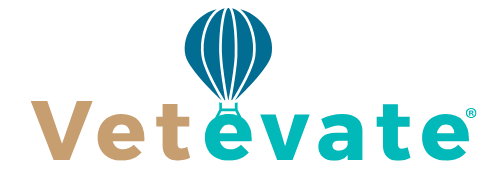In today’s fast-moving job market, responsiveness is no longer a luxury—it’s a necessity. Nowhere is this more evident than in the veterinary industry, where the demand for skilled professionals continues to outpace supply. Employers are competing for top talent, and job seekers are evaluating opportunities with high expectations around communication, transparency, and support. To remain effective and valuable, veterinary job boards must be responsive to the evolving needs of both groups. A static, outdated platform simply can’t keep up with the pace of change in veterinary recruiting or provide the real-time tools and engagement that users expect.
Veterinary job boards exist in a space that requires ongoing attention to shifts in market demand, job seeker behavior, and industry trends. The needs of a rural mixed-animal practice are very different from those of a specialty referral hospital, and both must be supported by a platform that can adapt to their unique hiring goals. Likewise, job seekers in the early stages of their careers require different resources and communication than experienced professionals or those transitioning from one sector of veterinary medicine to another. Being responsive to these nuances is essential for job boards that want to remain relevant and trusted in the eyes of their users.
A responsive veterinary job board goes beyond simply updating listings or posting new jobs. It actively listens to its user base, integrates new technologies, and adjusts to feedback in order to improve the user experience. It provides tools that make searching, applying, posting, and hiring easier and more intuitive, while also anticipating needs before they arise. In this way, responsiveness is not just about reacting quickly—it’s about staying ahead of the curve and making the platform better for everyone who depends on it.
Meeting Employers Where They Are
Veterinary employers often operate in high-pressure, time-sensitive environments. Whether it’s a busy general practice struggling to maintain staff coverage or a large multi-location group looking to scale efficiently, these organizations rely on streamlined hiring tools that work fast. When job boards are slow to respond—either in customer service, interface improvements, or feature rollouts—employers lose valuable time and risk losing quality candidates. A responsive job board helps employers fill vacancies quicker, manage their listings with minimal effort, and connect with applicants more directly and efficiently.
One way responsiveness plays out is in how job boards allow employers to customize their listings. In a competitive hiring environment, employers need to highlight what makes their workplace unique—whether it’s a supportive team, advanced equipment, flexible scheduling, or a commitment to mentorship. Job boards that allow for multimedia uploads, branding, and detailed descriptions enable employers to create listings that resonate with the right candidates. However, it’s not enough to offer these features once and move on. Job boards must continue to evolve their design and user interface to make the process faster, more intuitive, and more reflective of current digital expectations.
In addition, responsiveness includes the way job boards communicate with employers. If an employer runs into a technical issue or needs help optimizing a listing, support must be available and effective. Prompt, knowledgeable customer service is not only appreciated—it’s expected. Employers are busy managing patient care, operations, and staff. They don’t have time to navigate clunky tools or wait days for help. When job boards respond quickly and clearly, they build trust and ensure repeat usage.
The veterinary job market is also subject to sudden shifts. Changes in licensing laws, economic trends, or public health crises can affect hiring patterns dramatically. Job boards need to be able to pivot when necessary, offering new tools or adjusting filters to meet emerging needs. Responsiveness to industry-wide challenges, such as relief vet shortages or growing telehealth demand, positions job boards not just as service providers, but as true partners in veterinary hiring.
Adapting to What Job Seekers Expect
On the job seeker side, responsiveness is just as critical. Today’s veterinary professionals—especially newer graduates and digitally savvy clinicians—expect technology to work smoothly and immediately. They are used to on-demand services, clear user experiences, and fast communication. If a veterinary job board feels outdated, clunky, or impersonal, many job seekers will simply stop using it. For a job board to remain useful and effective, it must continuously improve its interface, adapt to how users interact with listings, and provide feedback mechanisms that make job seekers feel heard and supported.
One of the most important areas where responsiveness matters is in the application process. Veterinary professionals do not want to jump through unnecessary hoops or fill out redundant forms just to submit a resume. A job board that enables one-click applications, allows resume uploads from mobile devices, and offers real-time application tracking is far more likely to keep job seekers engaged. Responsiveness in this context means reducing friction and offering a process that respects the user’s time and effort.
Another area is communication. Job seekers appreciate updates, confirmations, and clear expectations. If they apply to a job through a board and never hear anything—even an automated acknowledgment—they are less likely to continue engaging with that platform. Responsive job boards can help bridge this gap by encouraging or automating communication between employers and applicants. Whether it’s through messaging features, status updates, or notifications, a good job board helps job seekers feel seen and valued, even if they don’t ultimately get the job.
Beyond the technical aspects, responsiveness also includes offering the right kinds of support. Veterinary job seekers often look to job boards not just for listings, but for career advice, resume tips, and insights into the market. Responsive platforms offer this kind of content and adjust it based on current trends and common user questions. They might add webinars on negotiation tips, publish articles about specialty certifications, or offer downloadable templates for cover letters. When a job board evolves to reflect the questions and needs of its users, it becomes more than a search tool—it becomes a career ally.
Creating a Sustainable, Evolving Ecosystem
Responsiveness isn’t just about meeting current needs—it’s about preparing for the future. The veterinary profession is experiencing significant shifts, from changes in pet ownership trends to the rise of telemedicine and corporate consolidation. These shifts require job boards to remain flexible, curious, and willing to invest in ongoing development. Static platforms risk becoming obsolete, while responsive ones continue to add value year after year by keeping pace with the profession itself.
A responsive job board is also able to support the full lifecycle of veterinary careers. A new graduate looking for mentorship has different needs than a mid-career vet exploring leadership roles or a retired clinician interested in occasional relief work. Platforms that understand these stages and build features accordingly—such as customizable profiles, job alerts tailored to career level, or peer networking options—ensure they remain useful throughout a user’s entire career. This kind of long-term vision benefits both job seekers and employers by maintaining a vibrant, engaged user base.
The most successful veterinary job boards are those that treat responsiveness as a core principle, not an afterthought. They are constantly seeking feedback, experimenting with features, and learning from the way users interact with the platform. This creates a sense of trust and loyalty that general job boards rarely achieve. When a platform listens and responds, it earns the ongoing participation of both employers and job seekers—which, in turn, improves the overall effectiveness of the board for everyone involved.
Ultimately, responsiveness is what allows a veterinary job board to be more than just a place to find or post jobs. It becomes a reflection of the community it serves, adapting and growing alongside the veterinary profession itself. In a field where time, energy, and talent are precious, that kind of responsiveness isn’t just nice to have—it’s essential.




